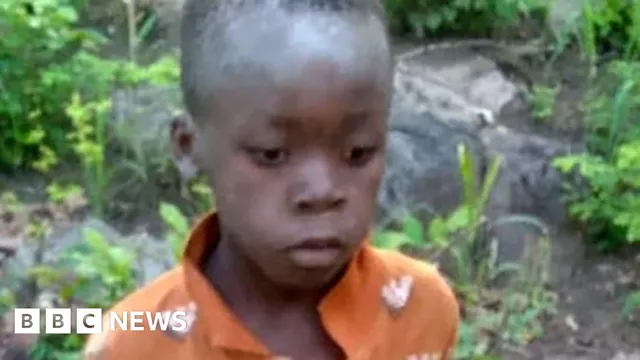
Boy survives five days in lion's grip by foraging for food in Zimbabwe
2025-01-03 14:03- An eight-year-old boy, Tinotenda Pudu, wandered 14 miles away from his home into Matusadona National Park, known for its wildlife.
- During his time in the park, he survived by foraging for wild fruit and digging for water in dry riverbeds.
- His miraculous rescue prompted praise for his resilience and survival skills, underlining the dangers of wandering into such areas.
Express your sentiment!
Insights
In a remarkable survival story, an eight-year-old boy named Tinotenda Pudu lived through five harrowing days alone in Matusadona National Park, located in northern Zimbabwe. The ordeal began when Tinotenda wandered away from his home in the remote village of Kasvisva. Unbeknownst to him, he had entered a wildlife area that harbors dangerous animals such as lions and elephants. Tinotenda traveled approximately 14 miles into this perilous territory, where wild animals and a harsh environment posed significant threats to his safety. Throughout his five-day survival, Tinotenda showcased extraordinary resilience and resourcefulness. He relied on his knowledge of the environment, eating wild fruits for nourishment, and ingeniously digging small wells in dry riverbeds to find drinking water. These skills, which he likely learned from local traditions in the drought-prone region, proved crucial for his survival in such challenging conditions. Meanwhile, the local Nyaminyami community organized a search party for the missing boy, using drums in efforts to lead him back home daily. However, it was ultimately the park rangers who discovered him after several days of searching. On the fifth day, Tinotenda heard the sound of a ranger's vehicle and ran towards it, narrowly missing the first opportunity for rescue. Fortunately, the rangers later returned and identified fresh human footprints, guiding them to his location. The incident has been hailed as a miraculous survival against the odds, with local representatives and social media users expressing admiration for Tinotenda's bravery and survival skills. His story serves as a testament to the spirit of resilience found in the face of extreme adversity. The boy's safe return not only marks an event of great joy for his family and community but also emphasizes the need for awareness and precaution when it comes to young children exploring areas with potential dangers.
Contexts
Search and rescue operations in Zimbabwe are critical for responding to emergencies, disasters, and incidents that endanger human lives. In a country facing various challenges, including natural disasters like floods and droughts, effective search and rescue initiatives are vital to ensuring public safety. The operational framework for search and rescue is coordinated by organizations such as the Civil Protection Unit (CPU) within the Ministry of Local Government, alongside various non-governmental organizations and community groups. These entities work together to provide timely and effective responses when emergencies arise, mobilizing resources and personnel to assist affected communities. The success of search and rescue operations depends heavily on the training and preparedness of responders. In Zimbabwe, there have been concerted efforts to enhance the skills and abilities of rescue teams through simulations and real-life drills. Local and international collaborations have also contributed to improved preparation capabilities, allowing responders to handle a variety of scenarios ranging from urban search and rescue to remote wilderness operations. Equipment and logistical support, such as vehicles, helicopters, and communication devices, are essential components of these operations and have seen improvements over the years. Furthermore, public awareness campaigns are imperative to inform communities about safety measures, communication protocols during an emergency, and the importance of personal preparedness. These initiatives encourage citizens to engage with search and rescue activities, fostering a culture of safety and readiness across the nation. With advancements in technology, including the use of drones and GPS systems, search and rescue missions can be conducted more efficiently, allowing for quicker response times and better accuracy in locating individuals in distress. Despite the positive developments, challenges remain in the execution of search and rescue operations in Zimbabwe. Issues such as funding limitations, resource allocation, and geographic barriers complicate efforts to reach those in need promptly. Continuous investment in training, infrastructure, and community engagement is essential to mitigate these challenges. Strengthening partnerships between governmental agencies, NGOs, and local communities can also enhance the effectiveness of search and rescue operations, ultimately saving lives and ensuring the resilience of the nation's populations during crises.